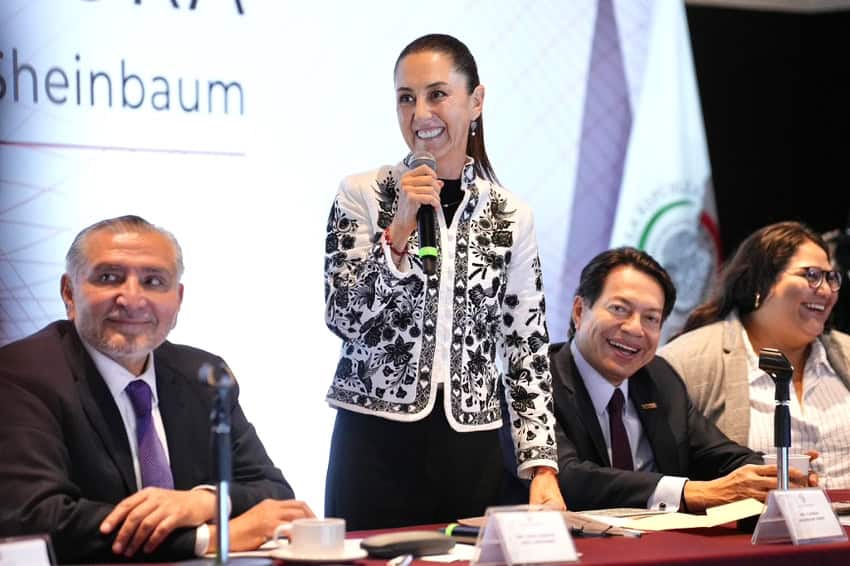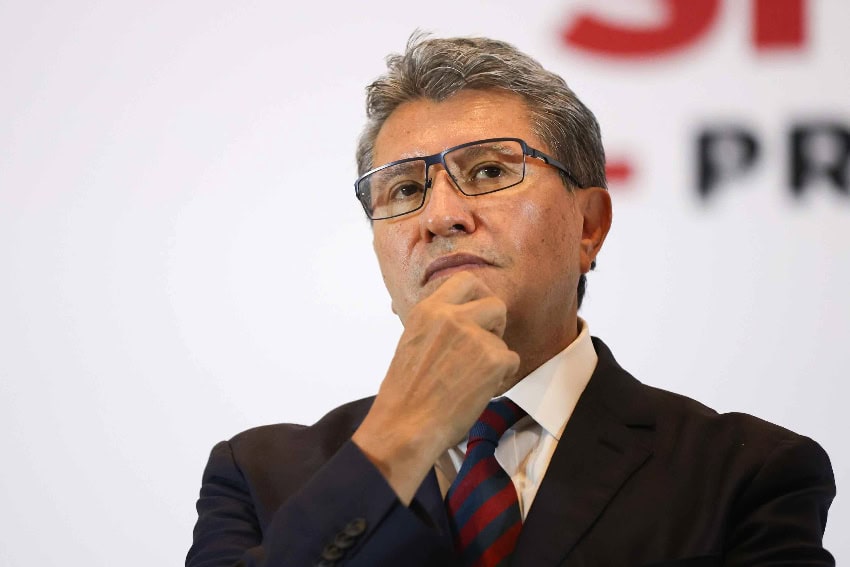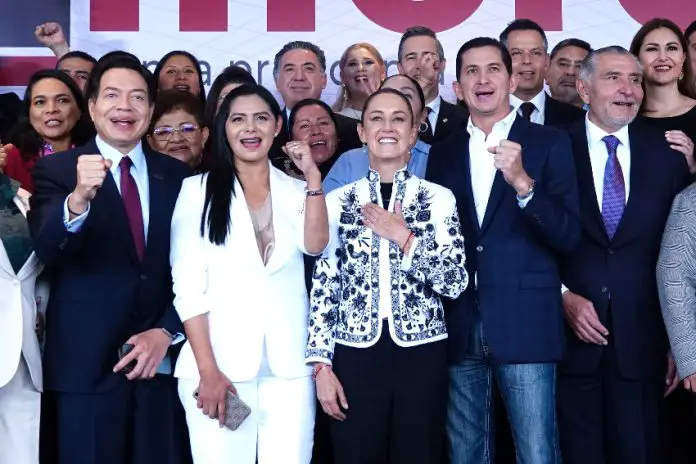Two soon-to-be senators elected as representatives of the Democratic Revolution Party (PRD) have joined the ruling Morena party, leaving the coalition led by Morena just one vote short of a supermajority in the Senate.
Morena and its allies are thus very close to being able to pass constitutional bills — such as the controversial judicial reform proposal — on their own as they will have a two-thirds majority in the Chamber of Congress once recently elected lawmakers assume their positions on Sept. 1.
Araceli Saucedo Reyes and José Sabino Herrera Dagdug were presented as Morena senators at a Morena party meeting in Mexico City on Wednesday, prompting spirited applause from other soon-to-be senators.
The leftist PRD, which was part of an opposition electoral alliance that also included the National Action Party (PAN) and the Institutional Revolutionary Party (PRI), recently lost its registration as a national-level political party after failing to get 3% of the vote in all three federal elections held on June 2.
As a result, Saucedo and Herrera — the only PRD candidates elected to the upper house — were left without a party to represent in the Senate. They could have chosen to sit as independent senators, or to join the PAN or the PRI — as might have been expected given that those two parties were in an alliance with the PRD.
Instead, Saucedo and Herrera decided to “jump” to Morena, leading the El Financiero newspaper to call them “senadores chapulines,” or “grasshopper senators” in a headline.

The practice of switching political parties is known as chapulineo, or “grasshopping,” in Mexico.
President-elect Claudia Sheinbaum met with the Morena party senators at a Mexico City hotel on Wednesday morning.
In a post to X, she said they will form a bloc that “will make history in benefit of democracy, justice, freedoms in our country and the wellbeing of the people of Mexico.”
She congratulated former interior minister and ex-governor of Tabasco Adán Augusto López Hernández for his designation as Morena’s leader in the Senate.

Sheinbaum, who will become Mexico’s first female president on Oct. 1, also welcomed Saucedo and Herrera to Morena, saying that they “took the historic decision to join the parliamentary group of our movement.”
Herrera, a native of Tabasco, a rancher and a former state lawmaker, said that he and Saucedo decided to “join the cause of the people” after the PRD lost its registration.
“We will be permanent allies of Claudia Sheinbaum,” he said.
Saucedo pledged to contribute to the success of Morena’s legislative agenda, which includes a raft of constitutional reform proposals President Andrés Manuel López Obrador sent to Congress in February.
Both she and Herrera denied they were “traitors” as a result of their decision to join Morena.
“Treachery is going against your principles,” Saucedo said. “… Being firm with the principles I’ve maintained for 20 years — that’s not treachery. I’m a woman of the left,” Saucedo said.
Sheinbaum advises Morena deputies not to rush judicial proposal
After he and other incoming Morena party deputies met with Sheinbaum on Tuesday, Ricardo Monreal said that the president-elect advised the soon-to-be Morena lawmakers to be “careful with the procedural stage” when considering the judicial reform proposal.
Monreal said she told the incoming deputies to “not rush” and “strictly observe the law” when the constitutional bill is presented to the lower house.
“It’s a correct suggestion,” he said, adding that while the reform proposal may be discussed in the Chamber of Deputies on Sept. 1, it won’t necessarily be approved that day.

The likelihood of the reform being approved has caused significant concern among many Mexican citizens as well as foreign investors, and has contributed to a significant depreciation of the Mexican peso since the June 2 elections.
United States Ambassador to Mexico Ken Salazar said last week that he believed that the “popular direct election of judges is a major risk to the functioning of Mexico’s democracy.”
López Obrador announced Tuesday that the Mexican government was pausing its relationship with the United States Embassy in Mexico due to what he described as Salazar’s “unfortunate, imprudent” and interventionist remarks.
With reports from El Universal, Reforma, El Financiero and Milenio
